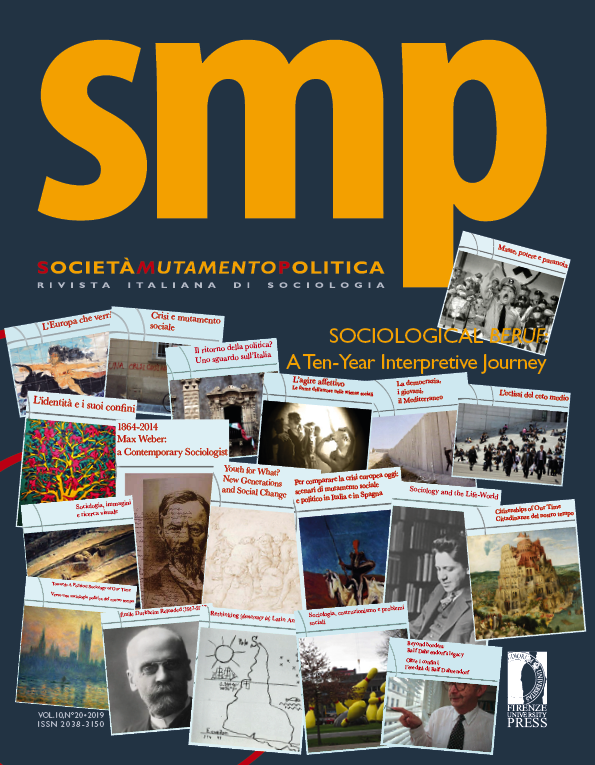Published 2020-01-16
Keywords
- Max Weber,
- Leadership,
- Charisma,
- Rationalization,
- Leader Democracy
- Populism ...More
How to Cite
Abstract
The key issue of leadership in the democratic process reflects different perspectives that affect the relationship between legitimacy and power, the perspective of a “prejudice” towards leadership due to the excessive concentration of power, and the types of trust and linkage that the leader can activate in the processes of personalization of politics, within, beyond, against or notwithstanding political parties. The purpose of the paper is to investigate the different paths and the different role of leadership in the transformation from party democracy to leader democracy on the celebration of the hundred years since Weber’s 1919 lecture “Politik als Beruf”. Regarding this topic, we consider the concept of plebiscitarism, the different ways in which this process develops, and the relationship between leadership, charisma and democracy in contemporary societies. In order to explore this research field it is necessary to consider the key role of charisma in the Weberian sociological work, not only in reference to the sociology of power, but starting from the relationship between disenchantment and bureaucratization in Western rationalization. The clarification of these concepts is far from nominalistic considering that they point out the different substance that plebiscitary disintermediation assumes in the relationship between leadership and democracy. Just this is the premise that allows distinguishing the difference between the personalization in liberal-democracies, the charismatic personalization and the populist personalization. Although a large part of the literature on populism tends to equate the populist leadership with the charismatic one, there is however a more recent questioning of the overlapping of the two phenomena. The paper aims to analyse the Weberian theory of charisma and to answer the question of whether charisma still has a chance in hyper-rationalized contemporary societies. Moreover, if the charisma requires a higher quality, who can be defined as a charismatic leader today?


